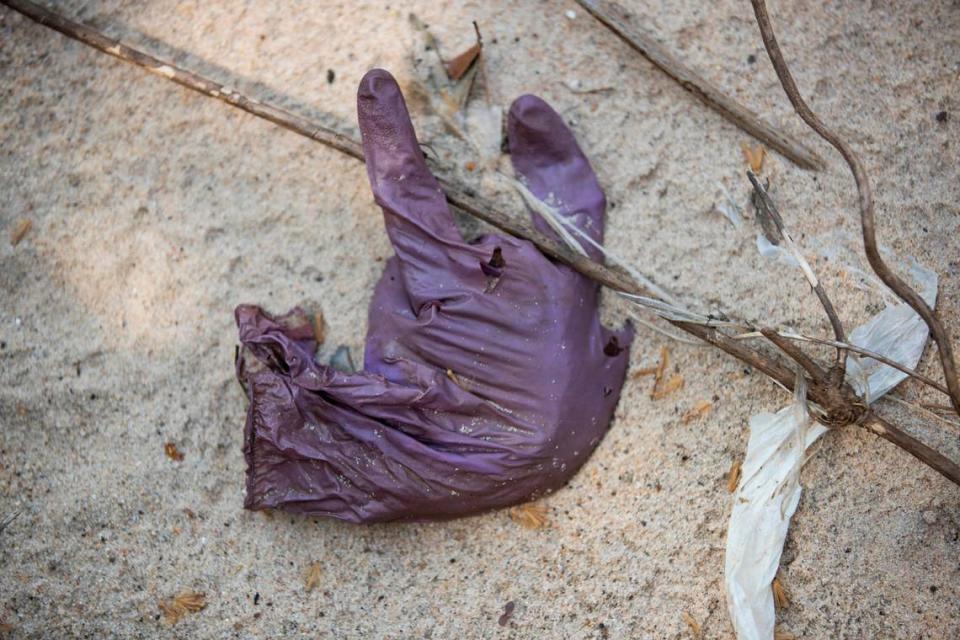Reducing litter across state makes South Carolina a healthier, better home for all | Opinion
Keep S.C. clean
Note: Taylor Gray is the grants coordinator for the City of Cayce.
Litter is a problem across South Carolina and it’s time we did something about it.
Every year, millions of pounds of litter are left on our streets, highways and waterways. This litter is unsightly, harmful to the environment and a public health hazard.
Litter also has grave impacts on our economy. Studies have shown that litter can deter tourists and businesses from choosing to visit or expand their company in our state.
Litter can increase the costs for local businesses as they must spend more money cleaning up the trash left behind by others.
One group helping to improve the situation is the City of Cayce which has partnered with Palmetto Pride, a non-profit organization that is working to reduce litter in South Carolina, to foster community clean-ups.
With Palmetto Pride’s help, Cayce is working to educate our community and visitors to our city about the importance of litter prevention, litter laws, and how to keep Cayce litter-free.
What can you do?
• Don’t litter. It’s as simple as that. If you see trash, pick it up and put it in a trash can.
• Encourage your friends and family not to litter. Talk to them about the importance of keeping our streets and waterways clean.
• Support organizations that are working to reduce litter. Donate to Palmetto Pride or similar organizations.
Let’s work together to make South Carolina a cleaner place to live, do business, visit and enjoy.
Taylor Gray, Cayce
Let democracy thrive
I am writing out of concern for the growing public misunderstanding surrounding two distinct pedagogical approaches: culturally relevant teaching and critical race theory.
These two concepts are increasingly being conflated in public discourse, leading to unfounded accusations and a general climate of mistrust.
Culturally relevant teaching is an educational philosophy that emphasizes the importance of incorporating students’ cultural references in all aspects of learning. It promotes diversity, inclusivity, and the validation of students’ own experiences, empowering them to relate personally to the curriculum and contribute their unique perspectives to classroom discussions.
Critical race theory is a framework that examines society and culture as they intersect with race, law and power. While this approach has its place in academia, specifically in the exploration of societal structures and inequality, it is distinctly different from culturally relevant teaching.
A healthy democracy thrives on informed debate and mutual respect for diverse perspectives. We must, therefore, strive to understand and communicate the accurate definitions of culturally relevant teaching and critical race theory, and their respective places within the educational system.
George Johnson Jr., Ph.D., Columbia
Reading matters
As a former English teacher and a patriot, I find the growing influence of extremist groups horrifying.
According to the views they are espousing, anybody who is different from them should be silenced and shunned. Case in point: school boards have been bullied into banning books that before now were considered perfectly fine.
It is essential that every student, regardless of gender or race, have the chance to see themselves reflected in what they read.
If the purpose of education is to create law-abiding, tolerant citizens, this trend must be stopped. Otherwise, we run the risk of raising a nation of bigots.
Amy Mikell, West Columbia
Travel lessons
After traveling to Switzerland to stand on the dock where an episode of “Crash Landing on You,” a 2019 Korean drama, was filmed, I was hooked on visiting actual filming locations.
This year, I traveled to Gwanghwamun Plaza in Korea to see the site of the K-drama “The King Eternal Monarch.”
This leads me to what I learned in Korea.
Their government budgets money to preserve history and culture. Tourists are a priority. They have a superior transportation system and there is no litter.
The older generation who went through the war will tell you how appreciative they are that America came and helped fight for their freedom.
Laraine Unik, Bluffton



